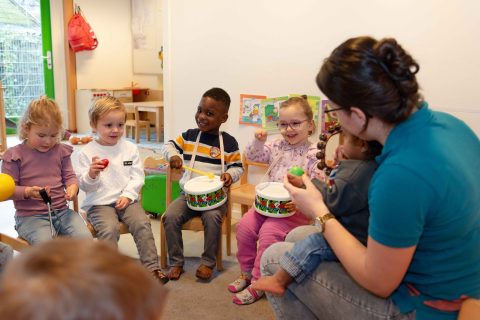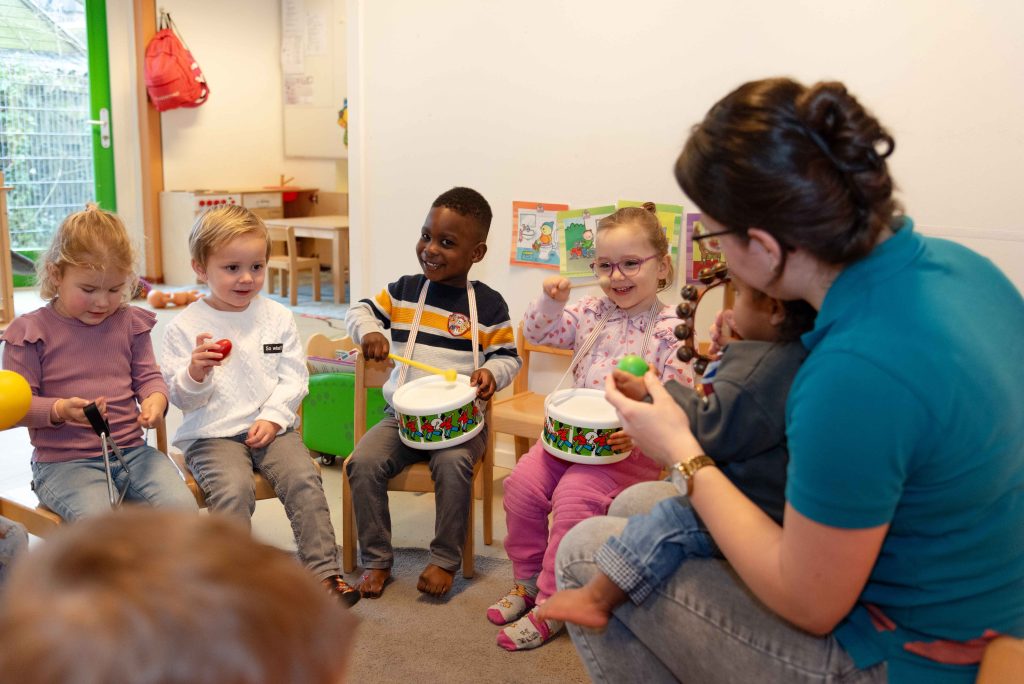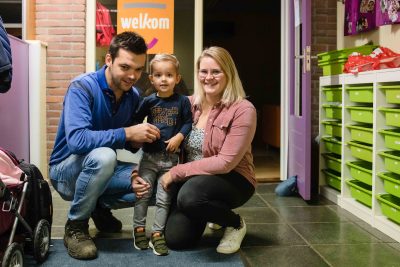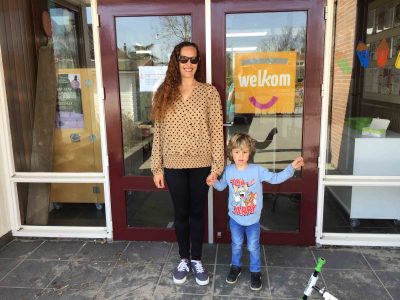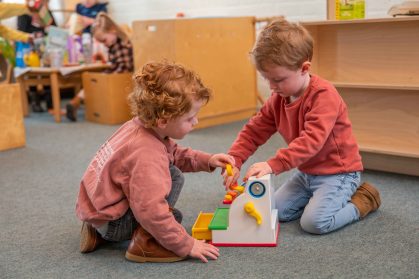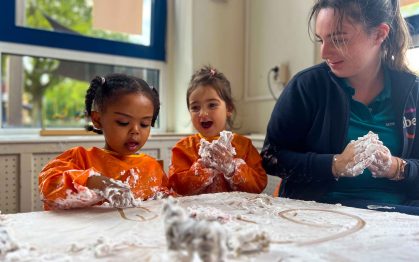Are you looking for childcare in a place where your son or daughter feels at home and can be themselves? Where your child is challenged to learn new things and where it is nice and protected to play with peers? Then come and have a look at Kibeo. Your child will quickly feel at home at our challenging, atmospheric locations. In our toddler group, formerly a playgroup or crèche, we have a lot of fun and ensure the right balance between activity and rest. At the end of the morning or day, you can happily take your toddler home with you.
Extra fine; varied lunch, healthy snacks, drinks, sleeping bag and sun cream are included in the care.
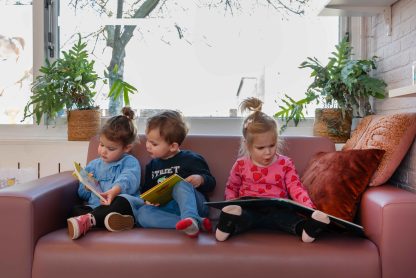
A flying start for your toddler
Your toddler learns a lot through play at Kibeo. Your child can play nice and protected and is challenged to learn new things. Almost all childcare centers work with Toddler Start, certified programs that stimulate your child's development.
When your child comes to Kibeo, he or she will quickly make a new friend; Puk or (at a number of locations) Bas. Puk and Bas are dolls that belong to Toddler Start and experience all kinds of recognizable, fun and exciting things together with your toddler.
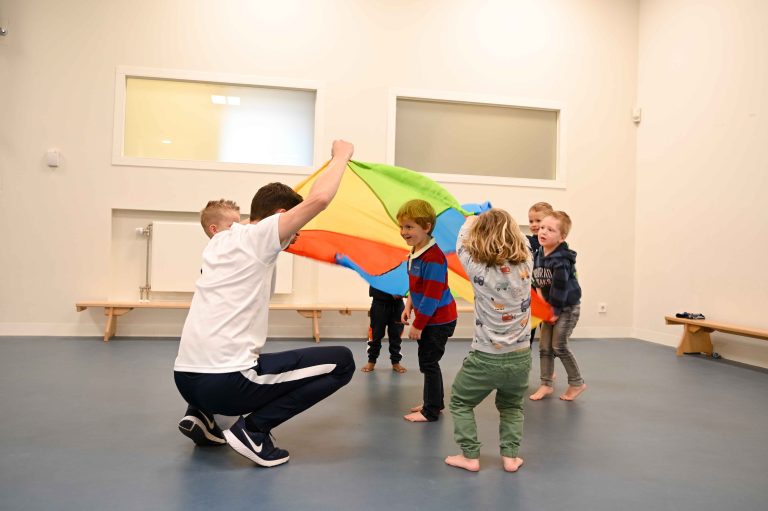
Your toddler learns to make friends and many new skills through play
The 'Uk & Puk' and 'Doe meer met Bas' methods consist of different themes, which your child will work on for a number of weeks. The doll Puk or Bas teaches your child a lot of new skills in a playful way. During the theme 'Enjoy your meal', for example, your toddler tastes pieces of fruit and vegetables and discovers whether he or she can eat with a fork, but also learns where food comes from and crafts his own placemat.
Through the activities your toddler does within the themes, he or she will become acquainted with concepts such as: big and small, near and far, above and below, next to and in. The songs we sing together stimulate speech and language development and teach your toddler to count, make friends, share, take turns and move to music, which is good for physical development.
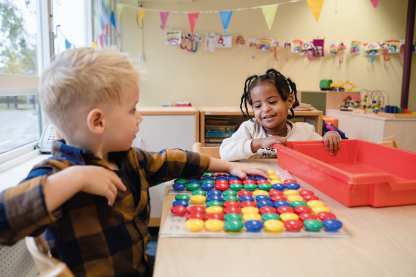
Good preparation for primary school
When your toddler turns four years old and he or she starts primary school, quite a lot will change. Thanks to Toddler Start, the transition to primary school will soon be a lot less. Kibeo has a good cooperation with primary schools, so that the themes of the toddlers fit in well with the programs of the kindergarten.
Observation method LOOK!
We monitor the total development of your child
With the LOOK! the pedagogical staff follow the total development of your child from 0 to 3 years. As a result, they know exactly what your child needs and always provide the right amount of challenge by adjusting the activities accordingly.
If the observations show (or if there is an indication from youth health care) that your child could use some extra support, he or she may free 1, 2 or sometimes even 3 extra day parts come to the shelter. This also applies if we notice that your child could use an extra challenge. For these extra half-days you can contact our toddler plus groups. Of course this will always be discussed with you first.
The data from the KIJK! observations are transferred to the primary school when your child is almost 4 years old. Of course, this also only happens with your permission. Guidelines for the amount of extra half-days differ per municipality.
Municipal allowance
The government considers it very important that all toddlers have the opportunity to go to day care with peers. This is good for your child's development, because here your toddler makes friends, learns to count, sing songs and much more! This way, your child will be well prepared for primary school when he or she turns 4 years old.
To encourage this even more, some municipalities will help you with the costs of day care. Which arrangement applies to you depends on a number of factors; do you receive childcare allowance or do you pay a monthly parental contribution? And in addition, does your child have a referral from youth healthcare or not? For example, because he or she has a language deficiency. Check below which (extra) arrangements there are in your municipality!

